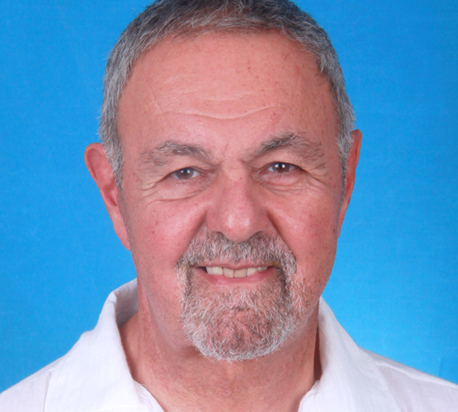Joseph Dispenza
// Author & Spiritual CounselorJOSEPH DISPENZA is an author, spiritual counselor, and co-founder of LifePath Retreats in San Miguel de Allende, Mexico. He is a former university professor and monk who lived for many years in a monastery learning personal spirituality. His books have received numerous awards, including the Lowell Thomas Award for Travel Literature and the Reader’s Choice Award. Joseph Dispenza’s award-winning book “The Way Of The Traveler: Making Every Trip A Journey Of Self-Discovery (Second Edition)” (2002), “On Silence: 30 Days To A Powerful Spiritual Practice” (2003), and “God On Your Own: Finding A Spiritual Path Outside Religion” (2006) are all available from Amazon.com.
Website: www.josephdispenza.com
Photo: Joseph Dispenza / LifePathRetreats.com
Interview:
I just finished writing a novella, the theme of which is forgiveness. An American missionary nun, caught in crossfire between opposing forces in the civil war that ravages a Central American country, writes a long letter to her sister, also a nun and her Mother Superior, in the United States. All through the writing of The Passion of Sister Barbara, I had been listening to music.
Music plays on my Internet radio all the time I am writing. I listen to two types of music—opera and Sinatra, what’s been called recently “The Great American Songbook.” Both are classic in their categories. Both give me enormous support for my work, encouraging me to do my best. I can’t imagine writing an essay, an article, or a book without having music playing. I write with my headphones on.
From opera I get the surging emotions of heightened dramatic moments: love, death, passion, fear, and triumph. It is over-the-top in its depiction of crisis, despair, longing, and all the other great human moods that move our lives. It pushes me to explore those deep regions where we begin to approach an understanding of who we are, why we are here, and where we are going. What could be more wrenching than the end of Madame Butterfly, when the Japanese heroine at last discovers, in a crushing blow, that her American husband has forsaken her and married a “proper” American wife?
Sinatra and his type of music—Tony Bennett, Ella Fitzgerald, Sarah Vaughn, Bobby Darin, Dean Martin, and the rest—bring the lyricism that pushes me toward the poetic. There is something very profound at the heart of much of this music. Think of all the emotional meanings layered onto the simple phrase, “My Funny Valentine” or “Little Girl Blue.”
Music is the language of the soul. It communicates at a spiritual level. When we hear music, we are literally tuned into our own spiritual nature. When that happens, a whole world of love and forgiveness is opened to us.
Dwelling as it does in the world of spirit, music has the capacity to transform and inspire. I am writing this in Chiang Mai, Thailand, where last night I attended a show put on by Thai teens, celebrating the life and music of Michael Jackson. Imagine! Years after his death and on the other side of the planet, his life-loving music and dance go on, bringing joy and healing to people.
All art, and especially music, has informed my values throughout my life. When I hear a surging symphony or a soaring opera—or listen to a gifted jazz band play one of my favorite melodies—I am inspired to do my best work. Not only that, but I am moved to be my best self.
“Dwelling as it does in the world of spirit, music has the capacity to transform and inspire.”
– Joseph Dispenza, Author & Spiritual Counselor


